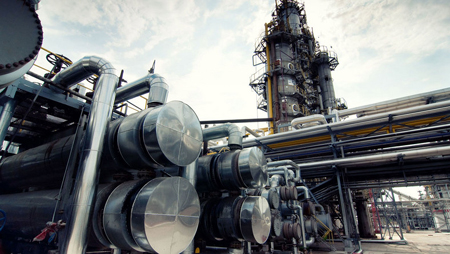……Says Private Investors Not Encouraged By Regulation
There was a consensus of opinion among key stakeholders in Nigeria’s midstream subsector of the oil and gas sector, as to why Nigeria has not reaped the huge economic value presented by her massive gas reserves.
Panelists at the 2019, Business Forum and 20th Annual General Meeting of the Nigerian Gas Association, NGA, in Lagos on Tuesday , blamed absence of conducive environment which allows regulated gas price regime to make the sector uncompetitive.
In his presentation, Chairman, Oil Producers Trade Section (OPTS), Paul McGrath, said the forum was timely and critical towards highlighting measures that enable capturing the potential benefits of the gas industry.
McGrath, said that the implementation of these measures will require deliberate and extensive collaborative effort between government and key stakeholders.
He noted that Nigeria is endowed with vast natural gas resources, which can play a leading role in diversifying the economy by stimulating the development of various sectors.
According to him, gas can be used for electricity generation, to provide feedstock for value-adding manufacturing, and to increase governments revenue from Liquefied Natural Gas, LNG sold in international markets.
McGrath, said that for the country gas provides a unique opportunity to provide steady, widely-available, cost-effective and generally affordable power to everyone, and that a shift to gas-fueled power generation would represent significant savings opportunities over sources such as diesel which is multiple times more expensive than gas at the current price of $2.5 /million British thermal unit mmbtu.
This saving can then be redeployed by power consumers (individuals and businesses) to other goods and services and to new investments.
Additional opportunity exists in leveraging gas to develop industries that use gas as feedstock, to produce methanol and ammonia used in fertilizer production.
The Nigerian agricultural sector, the largest GDP contributor to our economy, would benefit immensely from greater availability of fertilizer. Considering the low nitrate concentration in our soil and gas being the key feedstock for nitrate-based fertilizer, developing the gas industry could contribute to enhancing food security.
He further analysed that the Nigeria Liquefied Natural Gas LNG (NLNG) maintains 70-80 thousand jobs in the economy and contributes $1.3 billion each year in revenue to government, providing much needed revenue for the government to deploy for the benefit of Nigeria, such as development of infrastructure and diversifying the economy.
Speaking on challenges and solutions to unlocking Nigeria’s gas potential, he stressed that to realize the full benefits of gas as a catalyst for economic growth and diversification, several challenges across the entire gas value chain need to be resolved.
He listed the challenges to include, inadequate infrastructure along the value chain; regulated low prices; legacy debt related to gas and power supply and the challenging business environment.
“It is no longer news that infrastructure along the gas and power value chain remains inadequate. Particularly, Nigeria lacks sufficient pipelines to deliver gas from the fields where it is produced to the current and potential off-takers (e.g., power plants, manufacturers, etc.).
In addition, the transmission and distribution systems lack the capacity to deliver the generated electricity to businesses and other consumers.
Building infrastructure requires a sustained joint effort of the stakeholders led by government. Active government support will help enable a stable investment climate, acceptable commercial terms and contractual risks.
The above elements will help in attracting the required private investments which would strengthen existing off-takers and ultimately lead to emergence of new buyers and suppliers” he advised.
He further expressed worry that to date, Nigeria’s domestic gas prices are kept at a regulated low price, which does not cover the cost required to fully develop its gas resources.
“Of the 162 trillion cubic feet of gas, TCF reported gas reserves, about 75 per cent will require the building of new infrastructure to deliver these gas resources to the domestic market.
The current regulated gas price of USD 2.50/mmbtu falls short of the price required to attract investment for these new gas developments.
The gas sector should transition into a liberalized market based on the ‘willing buyer, willing seller’ principle and ensure the existence of a competitive fiscal regime to support upstream gas development”.
He also noted that the commercial and financial structures of the gas-to-power commercial value chain remain weak with growing arrears and uncertainty in the payment system which disincentivizes gas investors.
McGrath there pointed out that a conducive business environment is essential towards achieving a diversified economy.
Critical elements of a conducive business environment include: security of life and property, improved efficiency of regulatory bodies and stability of laws and policies.
OPTS believes that improving the regulatory, judicial and legislative framework in line with global standards (dispute resolution, contract sanctity) would promote investor confidence and significantly improve Nigeria’s ease of doing business towards growing and diversifying the economy”.
In her submission, the deputy general manager, gas commercial, Total exploration and production, Mrs. Maryam Shehu noted that gas has good credentials as clean energy but government has not positively responded to dealing with critical issues inhibiting investment in the sector.
Shehu also described gas pricing regime as a major factor discouraging private investment in the midstream sector.
Engr. Emeka Okwuosa, managing director of OilServe identified infrastructure gap as limiting impact of gas as enabler to industrialisation.
Okwuosa, said efforts should be made to push volume of gas to support power generation to spur industrial growth and development.
Also speaking, Ed Ubong managing director Shell Nigeria Gas SNG called for concerted effort in development of gas in the country.
Ubong advocated for willing buyer willing seller option to attract investors as current price regime cannot guarantee return on investment.




